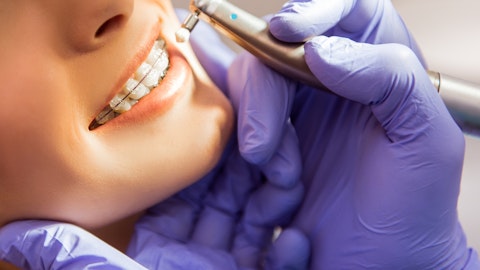Stan Sutula: Yeah. The raw materials continue, as Noel highlighted, to be a headwind for us and your range is probably in the right ballpark here as you think about that on a year-on-year basis. But I would emphasize, it has been volatile. So things have moved up and down pretty significantly here, and in particular, the agriculture and how that applies to Hill’s, those have not moderated, up in the second half, as Noel talked about at 25%, and as we look ahead, we think that will continue to be the primary headwind in raw and pack. The other volatile one is natural gas. Now fortunately, that’s been a benefit here in terms of moderating in the late second half and fourth quarter. But we expect that could be volatile as well heading into particularly the back half of 2023.
So a combination of those two primarily we think are the drivers as you look at raw impact going into the year. Now we have laid out our pricing actions and are funding the growth savings that we look to drive, combined with our productivity. And I will just mention Red Collar will moderate, but it’s still going to be an impact on a full year basis and it’s important to realize that. So that will moderate through the year on a full year basis, it will still be an impact on overall gross margin.
Operator: Our next question today is from Kevin Grundy of Jefferies. Please go ahead.
Kevin Grundy: Hey. Thanks. Good morning, everyone. Question for Noel and then perhaps, John, you may want to jump in on this as well. Just with respect to the impairment charge on the skin care assets and just more broadly, how this may be informing the view around capital deployment. So we can all appreciate the noncash charge. Not hugely surprising, you guys have been pretty open about some of the challenges in the business also realized higher rates when you perform the impairment test so all that kind of makes sense. But I guess just given this dynamic, it sort of back to the question, does it give you any pause in terms of how you stress the assets that you may be looking at, broadly does it increase your bias towards internal investment and returning cash to shareholders versus M&A?
And then maybe perhaps just from an M&A perspective, an update on any books broadly that you may be seeing and whether private market values have started to come in a bit given higher rates and what we see in the public markets? So thanks for all that.
Noel Wallace: Sure and good morning, Kevin. I think you characterized that well. So let me just recap quickly a couple aspects of skin health and I will turn it over to Stan and John for the second part of your question. The impairment was obviously based on three issues. The biggest change is our outlook on growth in China. You have seen, I think, external numbers that the Beauty segment has taken a significant hit in the last three months to six months, in fact, imports were down 20%. And given the prolonged impact of COVID in China, particularly as it impacts travel retail, which were a significant portion of our businesses, we obviously then decided to rebase the outlook in years going forward and particularly 2023 in a much more conservative position to ensure that we can deliver on the growth aspects moving forward.





